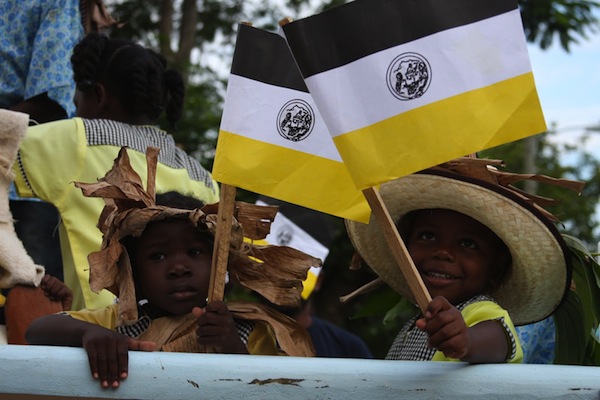Words by Jesse Serwer, Photo by Alyson and Clifton Klaverweiden—

Today is Garifuna Settlement Day, one of the biggest annual holidays in Belize. The holiday’s origins, which have their roots as far away as Nigeria, go a long way to showing why the Central American nation has such a distinctly Caribbean flavor about it.
Garifuna Settlement Day celebrates the distinct culture brought to Belize 200 years ago by mixed Carib, Arawak and African peoples, who had come to the country from St. Vincent. The birth of this unique culture is the result of a slave ship, carrying Ibibio people from southeast Nigeria, wrecking on Bequia, in the Grenadines, in 1675.
The Garifuna story then shifted to nearby St. Vincent, where the Ibibio were brought by Carib people, with whom they warred as well as intermarried, until the island was taken over in the late 1700s by the British. The British vanquished who they perceived to be the more rebellious among the Garifuna ranks—essentially those of darker, or more African appearance—to the island of Roatan, off the coast of the Honduras.
From there, the Garifuna (also known as Garinagu, or Black Caribs) spread up and down the Central American coast, most notably in Belize. Today, Garifuna comprise about 6 percent of Belize’s population, while there are sizable diaspora populations in NYC, LA and Chicago. Garfiuna language is still preserved while Garifuna dishes are an important and lively part of local Belizean cuisine. There’s even a contest held each year for Garifuna Settlement Day Queen, among other cultural events held to celebrate the day. Garifuna Settlement Day is also celebrated in Nicaragua on Nov. 19.
The Garifuna certainly have one of the most unique and complex cultural histories in the region, or anywhere. If you’re just hearing of them, use today as an opportunity to read up on it. This website is a good starting point. And this story on the Garifuna world’s top painter and singer, Pen Cayetano, and his musical creation, punta rock, is certainly worth a read, as is this recent news report about efforts to preserve the Garifuna language in NYC, home to as many as 100,000 Garifuna people.
